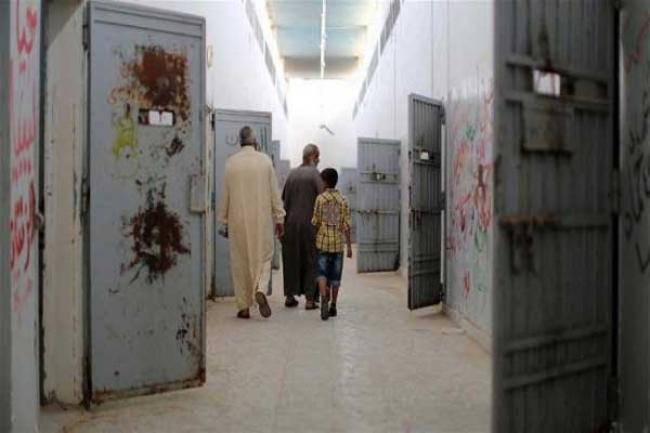Just Earth News 26 Feb 2016, 09:38 am Print

Photo: UNSMIL/Iason Athanasiadis
“Despite the human rights situation in Libya, the country only sporadically makes the headlines. A multitude of actors – both State and non-State – are accused of very serious violations and abuses that may, in many cases, amount to war crimes,” UN High Commissioner for Human Rights Zeid Ra’ad Al Hussein said in a press release.
The violations and abuses documented by the report from the High Commissioner’s Office (OHCHR) relate to unlawful killings, including executions of people taken captive, detained, abducted or perceived to be voicing dissent; indiscriminate attacks on highly populated residential areas; torture and ill-treatment; arbitrary detention; abductions and disappearances; and gender-based violence and discrimination against women.
Child Recruitment by ISIL and Attacks Targeting Women
Human rights defenders and journalists, migrants, and children are among the targets of those acts. For instance, cases of forced recruitment and use of children in hostilities by groups pledging allegiance to Islamic State of Iraq and the Levant, or ISIL/Da’esh, are also documented.
There has been a series of attacks by armed groups against women activists since 2014. The assassination of well-known activists, such as Salwa Bugaighis, Fareeha Al-Berkawi and Intissar Al-Hasaeri, and the threats, “harassment and assaults targeting many others appear designed to send a broader message that women should not be vocal in the public sphere,” notes the report.
“One of the most striking elements of this report lies in the complete impunity which continues to prevail in Libya and the systemic failures of the justice system,” Zeid said, underscoring the lack of means and capacity in the justice system to conduct prompt, independent and credible investigations or to prosecute those responsible for violations or abuses.
Since 2014, judges and prosecutors have been subject to killings, court bombings, assaults and abductions, he noted. As a result, courts in Derna, Sirte and Benghazi ceased activities in 2014, with limited re-activation of courts in parts of Benghazi in 2015, and victims have had little recourse to seek protection or to an effective remedy. “This impunity is facilitating further abuses,” he said.
“In the absence of proper protection, the judiciary cannot deliver justice,” says the report, which notes that the system for providing security is “inadequate and flawed,” as thousands of members of armed groups have been integrated into the Judicial Police with limited vetting.
Recommendations
The report recommends urgent action to stop the proliferation of armed groups through disarmament, demobilization and reintegration, and a vetting programme to remove and prevent the recruitment of individuals responsible for human rights violations or abuses.
The report further calls upon the international community to ensure that the International Criminal Court (ICC), which has jurisdiction in Libya, has the necessary resources to carry out its investigations and prosecutions.
Suggesting priority actions, it calls for addressing the security threats to administration of justice, reforming the Judicial Police, creating a robust victim and witness protection programme, establishing a specialized judicial structure within the Libyan courts to focus on crimes under international law, and organizing a high-level meeting to bring together Libyans actors and international partners to discuss initiatives to increase accountability in Libya.
- Viral Irish food bank photo sparks shocking racist attacks on Indians
- Caught on camera: Two foreigners assaulted in Israel in an alleged racial attack
- Pakistan: Parents heartbroken after court sides with man accused of kidnapping minor Christian girl
- Pakistan: Trafficked 35 years ago, Bangladesh-born woman approaches court against FIA for offloading her from flight!
- Hindu tea worker found bound and bloodied in Bangladesh garden during general elections; investigation underway





-1763561110.jpg)
